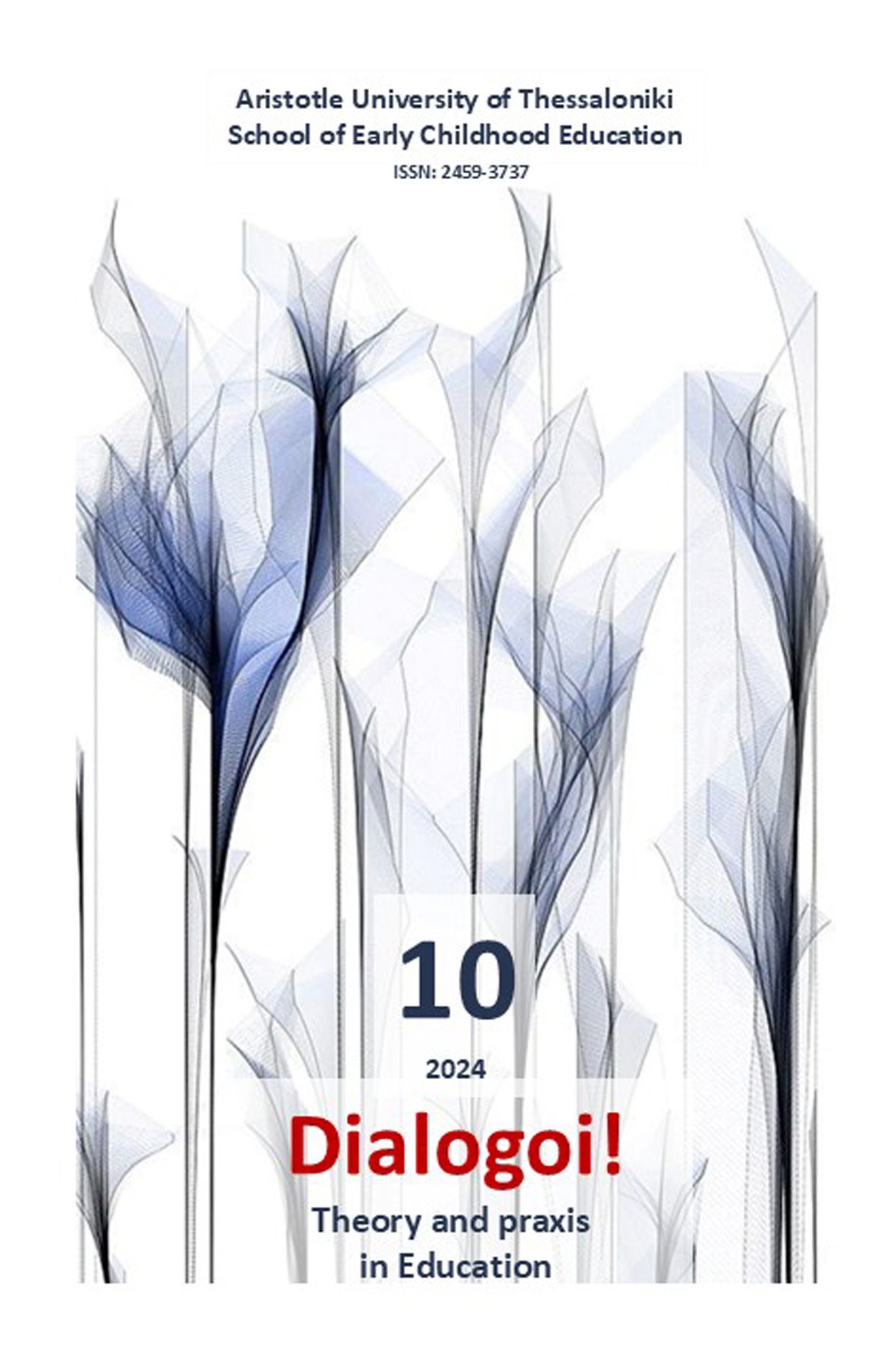The contribution of action research to the implementation of cooperative learning in a preschool classroom

Abstract
This article presents the contribution of action research to the implementation of cooperative learning in a preschool classroom. More specifically, the paper presents the process and results of an action research carried out in a public Kindergarten in Rethimno-Greece during the school year 2022-2023. The sample consisted of 15 children, at the beginning of the school year, while after March the class group was enriched and consisted of 20 children.
In the context of the new curriculum for preschool education in Greece, cooperative learning is a key element of teaching. Despite the significant benefits of cooperative learning, research shows that teachers encounter significant difficulties in preparing children for cooperative interactions. In cooperative learning, the teacher must make important decisions and also answer pressing dilemmas regarding the organization of the learning process. As the new curriculum for preschool education also acknowledges, these decisions concern a) the way the teams are formed, b) the determination of the nature of collaborative activities, c) the support of the division and the assumption of specific roles, d) the development of interactions and relationships both within the groups as well as between the groups and finally e) the presentation, evaluation and feedback of the groups (Penderi, et al., 2022).
In the present study, the teacher-researcher and the facilitator participated in action research. The participants met regularly in order to plan, implement and evaluate the implementation of cooperative learning and teaching. A total of 13 meetings were held during the school year.
The teacher-researcher considered that cooperative learning is an important element in the organization of the learning process in preschool education, while she expressed the need to improve her pedagogical practice in this particular field. The teacher-researcher implemented eight didactic scenarios of cooperative learning and collected data both regarding the implementation of cooperative learning and its effect on the children.
To collect research data, the teacher-researcher kept a research journal following specific observation axes concerning children’s; interactions, but also teacher’s reactions when children were working in groups. At the end of the school year, the teacher-researcher also wrote a reflection report. The facilitator kept a research journal from his meetings with the teacher-researcher in order to support the implementation of cooperative learning and also to reflect on the research process itself. Also, a total of three sociometric measures were conducted to detect the children's social relationships before and after the implementation of cooperative learning. Self-assessment rubrics were used by the children themselves, usually after the completion of group activities. Rubrics were formulated by the teacher-researcher, and aimed at assessing indicators of children's engagement, cooperation and well-being.
Data analysis regarding the implementation of cooperative learning indicated on the one hand the difficulties and dilemmas of the teacher-researcher during the implementation of the teaching scenarios, and on the other hand the enrichment of her personal theory. These difficulties concern the separation of the groups, the type and level of cooperation, the role of the teacher during the implementation of cooperative learning and finally the relationship between the individual development of the children and cooperative learning. Regarding the effect of cooperative learning on children, the data analysis showed the development of children's cooperative skills and the enrichment of their social interactions. According to the teacher's diary there were obvious differences in the way the children worked together within the group. They could support weaker students, discuss a topic and share responsibilities. Additionally, children preferred to play in groups in their free play, they made group constructions and asked the teacher to present them to their classmates.
Article Details
- How to Cite
-
Nikoloudaki, E., & Alexakis, D. (2024). The contribution of action research to the implementation of cooperative learning in a preschool classroom. Dialogoi! Theory and Praxis in Education, 10, 52–77. https://doi.org/10.12681/dial.37941
- Issue
- Vol. 10 (2024)
- Section
- Scientific columns

This work is licensed under a Creative Commons Attribution-NonCommercial-ShareAlike 4.0 International License.
Authors who publish with this journal agree to the following terms:
- Authors retain copyright and grant the journal right of first publication with the work simultaneously licensed under a Creative Commons Attribution Non-Commercial License that allows others to share the work with an acknowledgement of the work's authorship and initial publication in this journal.
- Authors are able to enter into separate, additional contractual arrangements for the non-exclusive distribution of the journal's published version of the work (e.g. post it to an institutional repository or publish it in a book), with an acknowledgement of its initial publication in this journal.
- Authors are permitted and encouraged to post their work online (preferably in institutional repositories or on their website) prior to and during the submission process, as it can lead to productive exchanges, as well as earlier and greater citation of published work (See The Effect of Open Access).


